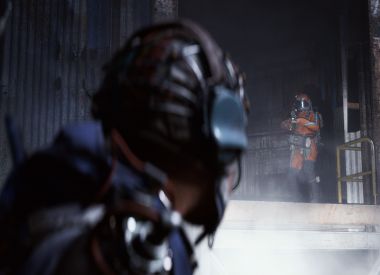Lords of the Fallen looks to perfect the tough-but-fair formula recently made popular by another member of the Bandai Namco family...or, at the very least, polish it up and change the decor a bit to appeal to a larger slice of the game-playing public.
Unfortunately, the latest project from CI Games and Deck13 doesn't do much more than prove that critically-acclaimed projects, like all three of the Souls games, are more than the sum of their parts. While the studios' attempts to smooth certain rough edges might appeal to new fans, major oversights (like a lack of fast travel) ultimately saddle Lords of the Fallen with as many burdens as the games that inspired it.
It's a game that I'd easily recommend to fans of punishing action-RPGs, even if Lords of the Fallen isn't nearly as punishing as most, but I'm not sure that the changes introduced by Deck13 and CI Games will be enough to draw in a much larger audience. It certainly won't make a fan out of anyone who didn't have at least a passing curiosity about Dark Souls, Dragon's Dogma and/or similar titles. That's not to say that Lords of the Fallen isn't a mostly enjoyable experience. Thanks in no small part to the game's brevity, not to mention a few quality-of-life changes that should be popular with anyone who isn't fourteen and playing the game during that neverending period known as summer vacation.
Not because it mimics enough aspects of the Souls game to make discussion of Lords of the Fallen (without mentioning its fellow Bandai Namco franchise) virtually impossible, but because the changes made by the Lords of the Fallen dev team don't always deliver an improved experience.
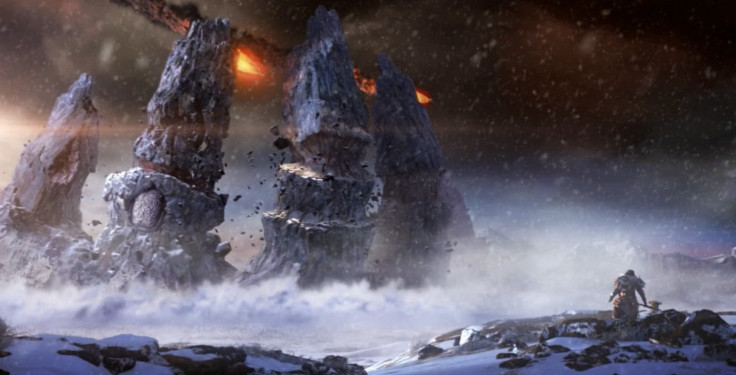
In Lords of the Fallen, players assume the role of Harkyn; a former inmate turned mercenary who has been recruited to stave off the latest assault of an ancient evil called the Rhogar. Should you fail to stop the hordes of evil the entire realm of Keystone will be plunged into a neverending winter. It's a pretty generic video game plot but also an appropriate backdrop for a game that attempts to use masochism as a form of entertainment.
While the Lords of the Fallen may not give players any control over Harkyn's appearance, back story or primary quest, CI and Deck13 did find a way to give weight to the game's character creation process.
Rather than building a character who looks like you, or offering the elaborate role-play possibilities found in a game like Skyrim, Lords of the Fallen asks you to decide how you'll be approaching the game before you're even given your first opportunity to pick up a sword.
After starting a new game, Lords of the Fallen asks whether you'd like Harkyn to be a Warrior, Rogue or Cleric. As you might expect, Warriors are the most armor-clad of the bunch, while Clerics look to strike a balance between armor, damage and maneuverability and Rogues all but abandon defense in favor of quick movements and punishing attack chains.
But here's the thing. If you think of the combat in Dark Souls as something akin to two expertly-matched boxers ducking and trading blows at a relatively strategic pace, Lords of the Fallen is the equivalent of 250-pound heavyweights standing in the middle of the ring and trading haymakers. Your ability to move quickly just doesn't seem to matter nearly as much as your ability to take a hit and keep going.
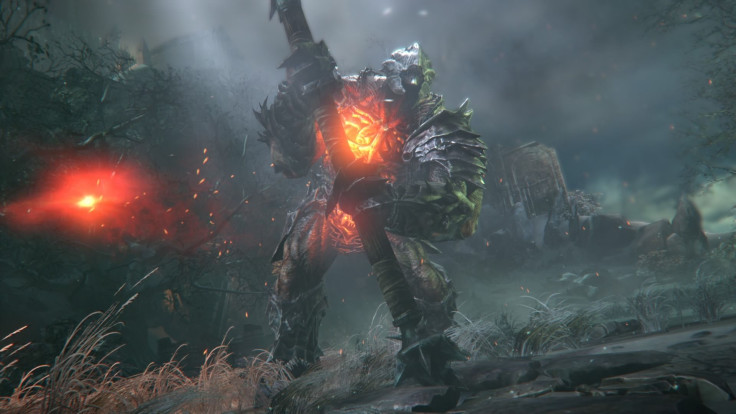
With that in mind, it's probably not hard to see how choosing Rogue or Cleric has been interpreted as (un)consciously ratcheting the game's difficulty up a few notches. Can you win the game with light armor and smaller, dual-wielding weapons? Absolutely. But don't expect that victory to come easily.
Once you've decided which types of armor and weaponry you think you'd like to use throughout the game, players will then be asked to decide which of the game's three magical paths you'd like to follow throughout the Lords of the Fallen campaign.
Unsurprisingly, each branch of the game's metaphorical magic tree lines up pretty closely with the basic design philosophy behind the three classes featured in Lords of the Fallen. Each features its own variant of Prayer, which creates clones of Harkyn to distract enemies, and three other spells that can either boost your damage, enhance your regenerative capabilities or increase your maneuverability.
Lords of the Fallen gives players the freedom to mix magic and class types to create a hybrid class a bit more to their liking -- with further tweaking made possible by the game's character progression systems -- but don't go into Lords of the Fallen expecting anything mind-blowing.
You should also know that you won't ever have a chance to change your class or magic affiliation, at least not without creating an entirely new character, once you begin the Lords of the Fallen campaign.
So choose wisely.
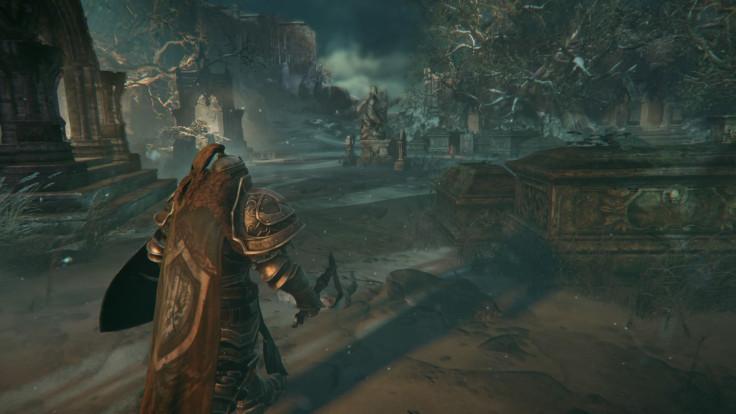
From the moment you're dropped into the world of Keystone, it's not hard to see why Lords of the Fallen has drawn so many comparisons to Dark Souls 2, that other highly-anticipated action-RPG that Bandai Namco published earlier this year. Then again, writing off Lords of the Fallen as a simple Dark Souls clone feels a bit lazy, not to mention dismissive of the significant changes present in the publisher's latest release.
Combat is weighty in Lords of the Fallen, with light and heavy attacks mapped to each shoulder button and trigger, and action mechanics influenced as much by your current endurance/stamina as the stats on your equipment.
Those who choose to dual-wield weapons will find they can chain various stabs, slashes and overhead swings into increasing deadly attack chains while those who prefer the sword-and-board approach can stand tall behind a tower shield and patiently wear down their aggressors. There are also plenty of poleswords, great axes and other large weaponry for those who prefer to two-hand a single weapon.
Certain enemies may occasionally force you to switch up your tactics but a wealth of usable equipment -- not to mention the freedom to use anything that fits within the weight restrictions of your build -- keeps Lords of the Fallen players from backing themselves into corner that can't be escaped. Thankfully, much of the game has been designed to give players a surprising amount of flexibility in each scenario.
Where Lords of the Fallen differs, though, is that it doesn't force players to commit to many of their actions in the same way that Darks Souls did. Rolls can be used to cancel an accidental potion usage, along with some attacks and spells, and I the ability to instantly change equipment from the pause menu gives players an ability to adapt to changing surroundings that simply isn't present in the Souls franchise.
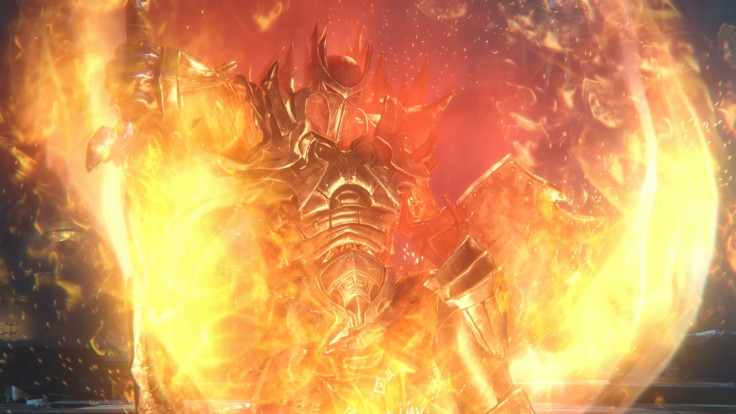
Similarly, enemies feel a bit more varied in Lords of the Fallen than they did in Dark Souls, though I should point out that the former is populating a significantly smaller game world than the latter. Some of the enemies might get a bit more stale if you choose to complete all of the game's Proving Ground and Infinite Void segments, too.
What I find interesting is that, despite substantial differences in the way each enemy approaches combat, it's not hard to see how a variety of approaches could still deliver a victory in each combat scenario. Granted, some of those strategies are going to take noticeably longer than others, but it's always nice to see developers giving players the freedom to choose.
I just wish I could say the same thing about the game's boss encounters.
Lords of the Fallen's marquee battles fall woefully short of being the memorable set pieces I'd hoped for, instead offering some of the most tedious and unenjoyable moments in the entire campaign. Many seem to directly mirror boss battles from the Souls franchise, albeit with a few tweaks to make each an even bigger headache. After the third or fourth big battle in the Lords of the Fallen campaign, I began to fear future boss encounters only because I knew it's all I'd be doing with the next few hours of my life.
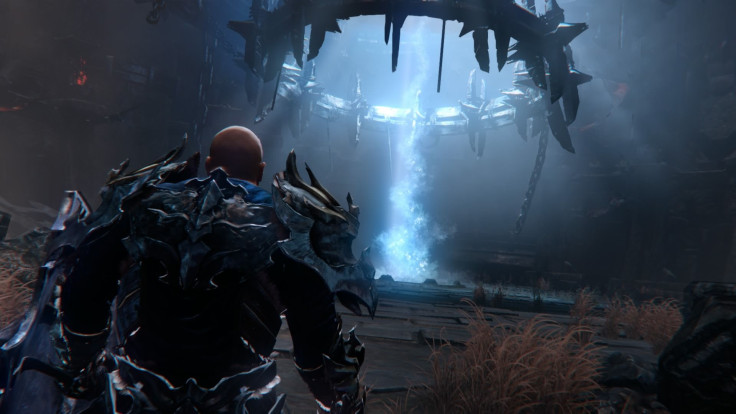
Worse, several of the boss battles begin to show some of the rougher edges in Lords of the Fallen that I'd likely never have noticed if it weren't for the fact that each offered enough time to train a magnifying glass back over its particular segment of the game. Prime example, there doesn't seem to be any discernible pattern to which objects your enemies can/can't attack through, leaving players to wonder whether abnormalities in the environment (say, a large stone column) can be used to their advantage.
None of the boss battles in Lords of the Fallen are especially difficult, with the worst of the bunch only managing to kill me seven times, but most of the encounters will require 15-30 minutes of incredibly repetitive dodging and attacking that doesn't actually feel reflective of the overall experience.
And that's only after you've figured out which of that boss' attack patterns (if any) actually leave an opening for you to attack without taking damage. As I mentioned before, I think it took me at least sixty minutes to finish all but two of the game's bosses, and some even took me two-plus hours to best.
One fight actually led me to put the game down for a couple of days, largely out of fear that it would have become the second game in less than a month to drive me to punch a hole in my wall. After giving my nerves a break, my next session saw me drop the foe on my first try, but only after a lengthy battle that left me with very little desire to continue playing the game.
Generally, I'd just put my controller down and take a few moments to find comfort in the knowledge that I'll never have to see that part of the game again. It's a shame, considering how enjoyable I found exploring Keystone and facing off against the various smaller entities I encountered.
Not all of the game's top-level encounters suffer from these issues -- in fact, I'd already killed the first two bosses before I died for the first time -- but I can safely say that there wasn't a single time when I finished a boss encounter in Lords of the Fallen and actually felt satisfied.
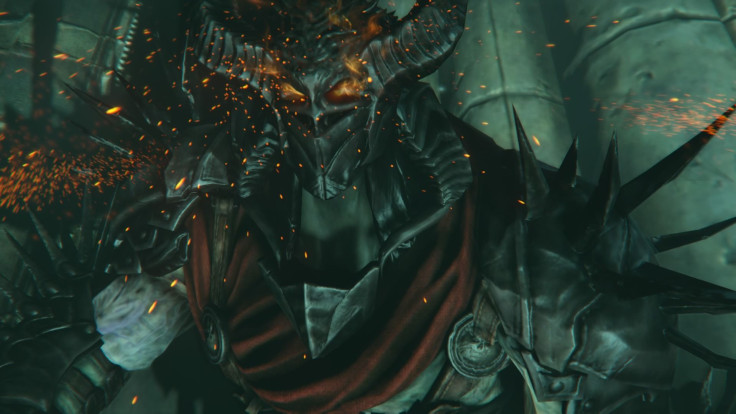
On the flipside, taking the time to explore Keystone and complete the various side-missions that are unlocked after each boss battle will reward players with gear that is noticeably more powerful than what you'd otherwise find when looting enemies and treasure chests. It gets to be a bit much and players will find that Harkyn is basically a walking armory by the end of the Lords of the Fallen campaign.
Secret passageways hide everything from new loot to shortcuts between two destinations and those willing to explore every door and passageway will occasionally even find alternate routes to their next objective. Similarly, you'll occasionally encounter NPCs that need Harkyn's help recovering an item or killing a couple of monsters. In certain situations, helping might even mean handicapping yourself for the duration of the Lords of the Fallen campaign.
Unfortunately, access to the various side content in Lords of the Fallen is strewn about the world in much the same way as the vendors and other NPCs that you'll encounter on your journey. Which wouldn't be a problem if the game included a map, some form of fast travel and/or literally anything else that made accessing Proving Grounds and Infinite Voids feel like less of a chore. And seeing as the two don't really amount to much other than renamed and Heroic versions of Horde mode, I can't imagine most of those who pick up Lords of the Fallen will claim the trophies/achievements for completing the full set of either.
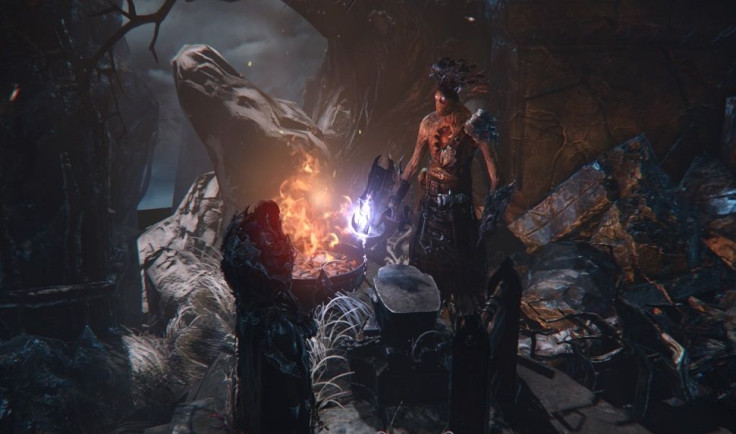
Lords of the Fallen Review - Final Verdict
Lords of the Fallen is a competent action-RPG; one that clearly knows which game(s) paved the way for its creation and (for the most part) what sort of audience it's trying to appeal to. While many have been quick to label the game an outright Dark Souls clone, I think it's a bit fairer to think of Lords of the Fallen as an arcade-style reimagining.
Ultimately, my feelings about Lords of the Fallen aren't all that dissimilar from my current thoughts on Destiny. On a mechanical level, the game is incredibly entertaining, and becoming proficient enough with the game's combat systems to take down increasingly powerful monsters without suffering any damage feels as rewarding as I'd hoped.
Sadly, it's the game's biggest moments -- in this case, boss encounters -- that leave me wondering if I'm enjoying Lords of the Fallen for the "right reasons", or if the weightiness and pacing of the game's combat have simply been an entertaining change of pace from the other games I've been playing.
If you're looking to scratch a particular action-RPG itch, especially those of you not thrilled by the prospect of waiting until February to get your hands on Bloodborne, Lords of the Fallen is probably one of the best games currently available on the PS4 or Xbox One. It offers much of the same weighty gameplay that is likely to dominate action-RPGs for the next few years and nearly a dozen patience-testing (albeit less-entertaining) bosses to defeat along the way.
The game isn't perfect, and may not make enough concessions to substantially increase the size of its potential audience, but Lords of the Fallen should be more than enough to appease longtime fans of tough-but-fair action games. Let's just hope CI Games and Deck13 can smooth out a few more rough edges in the sequel.
Score - 3/5
Want to share your thoughts on Lords of the Fallen? Can't believe we didn't give the game a higher (or lower) score? Having trouble clearing a particular section of the Lords of the Fallen campaign and want to solicit advice from the community?
Let us know in the comments section!




